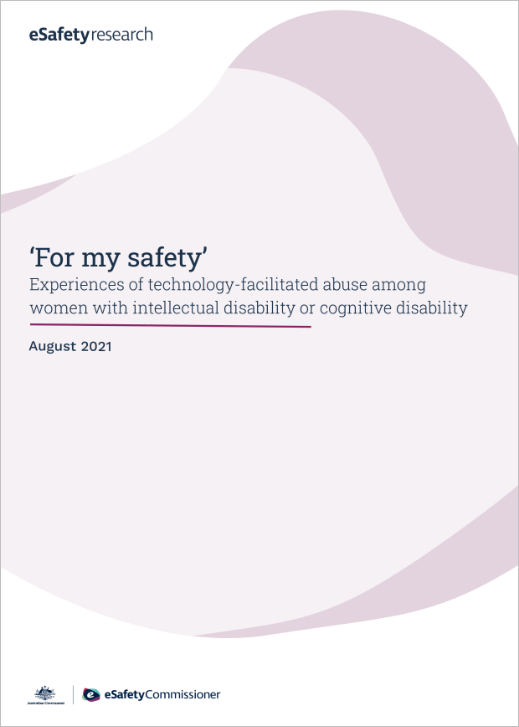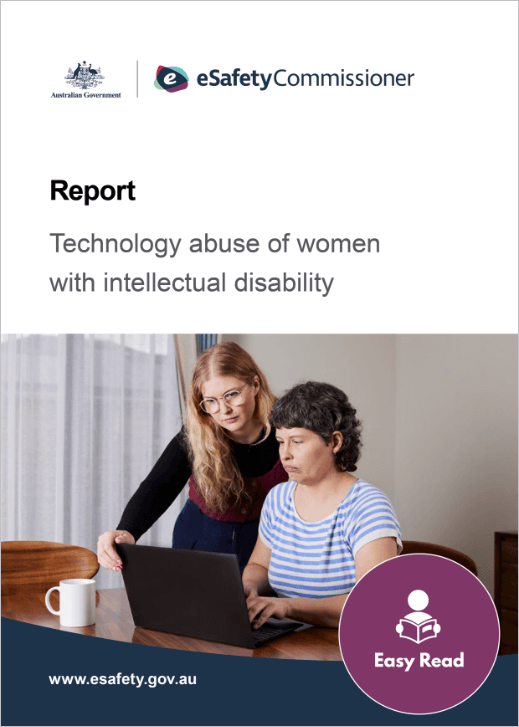Technology-facilitated abuse of women with intellectual or cognitive disability

The findings are based on interviews with women with intellectual or cognitive disability and frontline workers who provide support services.
This research was commissioned to address major gaps in the evidence about technology-facilitated abuse against women with intellectual or cognitive disability.
The report reveals that the tactics used for technology-facilitated abuse of women with intellectual or cognitive disability are like those faced by all women, but there are some unique differences.
Summary of key findings
Women's experiences
- Technology featured in the women’s lives in important ways. They used a variety of digital devices and platforms to connect with friends, family and partners as well as access information and services. In some instances, perpetrators could remove technology from these women, which could impact their autonomy, wellbeing and safety.
- The women had experienced a range of abuses, from general harassment to misuse of their online accounts, being monitored using spyware and tracking devices, and having their intimate images or videos shared without their consent.
- While most commonly the perpetrator was a partner or ex-partner, they included family members, carers and strangers.
Barriers to support
- Fear was a primary barrier for the women in seeking help for technology-facilitated abuse, including fear of having digital devices, apps and internet access removed, or of not being believed.
- In some instances, a woman’s situation was further complicated because her partner was also her carer. Women could feel trapped by needing to maintain access to their children.
- Some women were afraid to continue with their normal online activities when affected by technology-facilitated abuse. Some chose to keep using social media accounts, risking further abuse, because they wanted to maintaining communication with others.
- Not knowing who to contact to report online abuse created a barrier to accessing support. Many women did not contact formal agencies for help and instead sought assistance from friends and family.
Recommendations
- The research participants were eager to learn about safer ways to use technology and would like accessible information to be available, such as visual guides and documents in Easy Read formats.
- The frontline workers recommended an integrated approach between the domestic and family violence sector, the disability sector and the justice system, to improve service provision.
Download the report
Resources for disability support workers
Building on this latest research, eSafety has developed new resources and professional development sessions for disability services staff, frontline workers, and specialist support staff in the domestic and family violence sectors.

